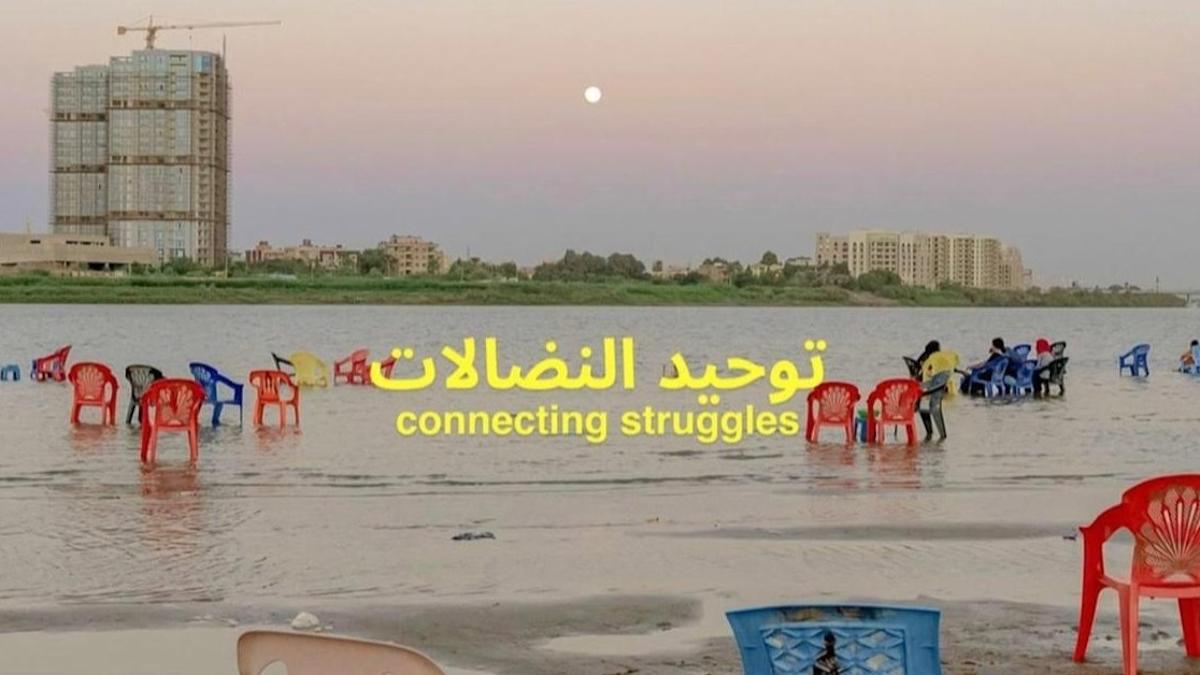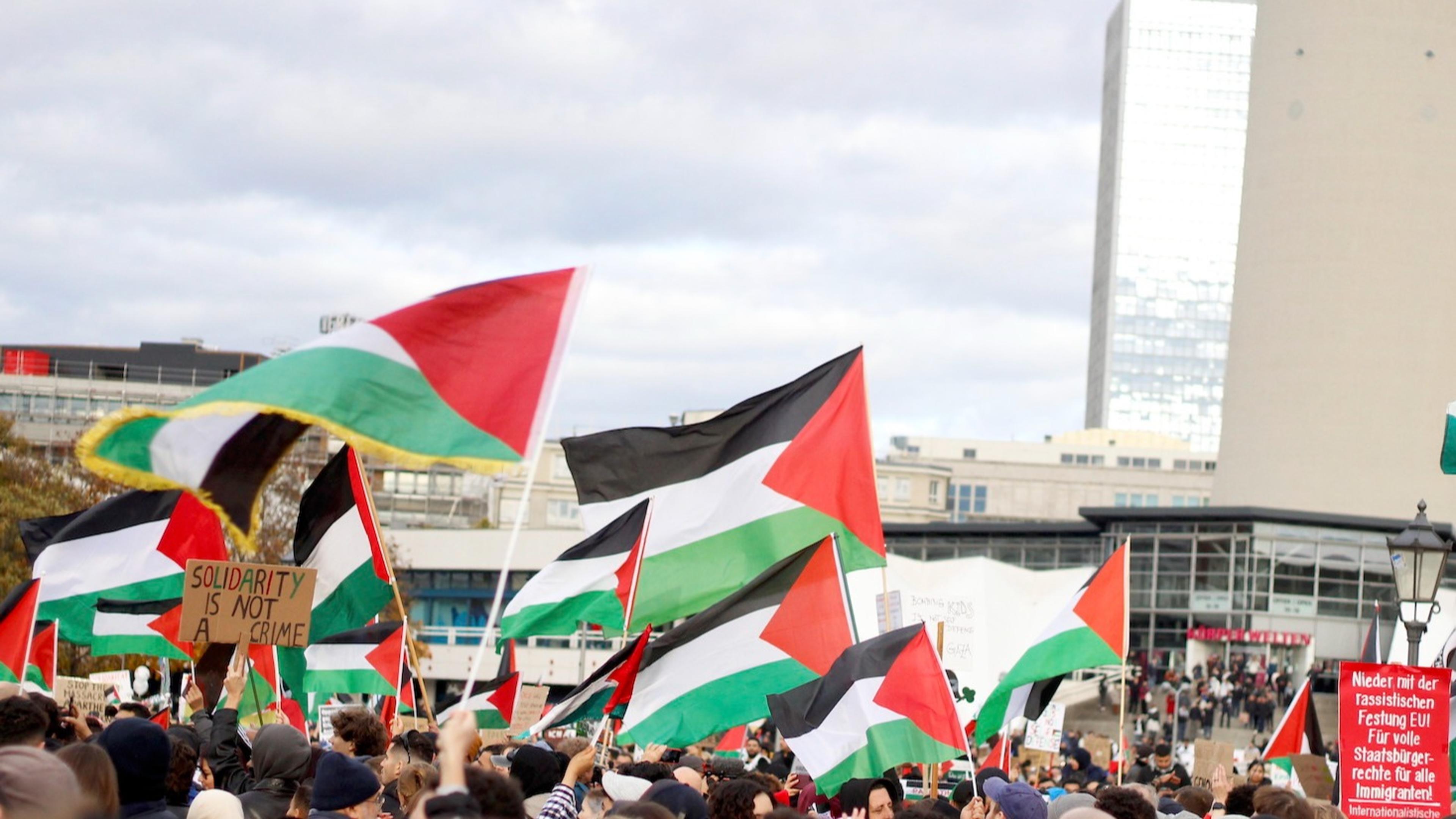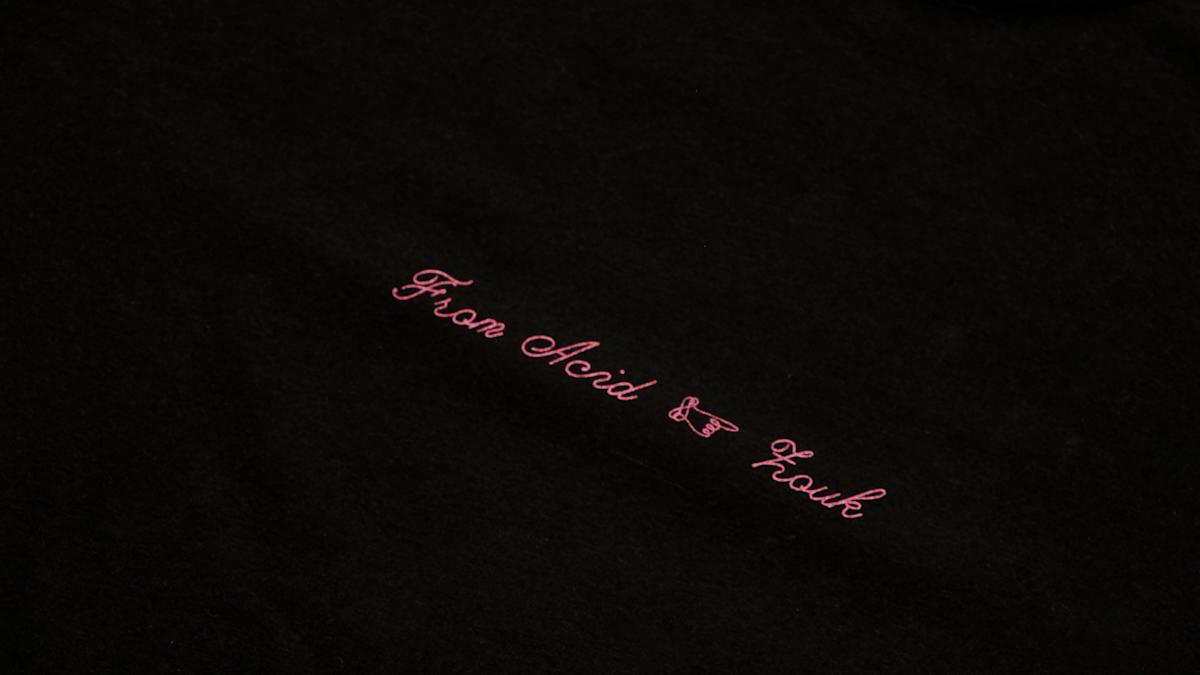
moe. and Acidfinky to host a fundraiser for Sudan and Palestine
Come down next Wednesday, December 10th.
Loading

Pro-Palestine artists silenced | UK-Rwanda plan ruling | Election in Argentina
By Staff
Our weekly roundup of stories you may have missed.
Genocide in Gaza
UN officials have joined the chorus of voices accusing Israel of “genocidal incitement” in Gaza, after Israeli Finance Minister Smotrich called for the “voluntary emigration” of over 2 million Palestinians from the region. So far, Israel’s bombardment of Gaza has killed at least 13,000 people, including 5,500 children.
Germany however continues to clamp down on expressions of solidarity with Palestine – last week Germany's parliament debated a draft law that could make criticism of Israel a barrier to German citizenship.
Artists and event spaces silenced for supporting Palestine
Mykki Blanco has come under fire from the German press for supporting Palestine. On 10 November Taz published an article accusing the artist, who has Jewish roots, of “Israel-hate” and antisemitism after Blanco told the crowd at a recent Berlin concert “we must pray for Gaza”.
Last week, Berlin-based photographer Raphael Malik had an exhibition focusing on Muslim life in Berlin cancelled, with the organisers seeking to avoid "conflict” and citing the exhibition's “one-sided presentation”.
Meanwhile, Neukölln cultural centre Oyoun may have all state funding cut after refusing to cancel a Jewish Voice event in solidarity with Palestine earlier this month. Read and sign the open letter here.
UK's Rwanda plan ruled illegal
The UK government’s controversial Rwanda asylum plan has been ruled illegal (again). The plan, which would involve sending asylum seekers to Rwanda to have their applications processed, has been blocked by the UK’s Supreme Court, on the grounds that it could put asylum seekers at risk. The ruling represents a key victory for activists in the UK and could have repercussions for lawmakers in countries like Italy and Germany where similar plans are being discussed.
Brazil's multiple heatwaves
Brazil is experiencing record-breaking heatwaves with temperatures in excess of 40 degrees in multiple cities. Driven by climate change and the El Niño weather pattern, the heatwaves have highlighted social inequality in the country, with those living in poorer urban areas worst affected by frequent power cuts, water shortages and extreme heat due to lack of green space. Brazil has had eight heatwaves already this year, with summer in the southern hemisphere still one month away.
Russian anti-war activist sentenced
Russian activist and artist Sasha Skochilenko has been sentenced to seven years in prison for replacing five price tags in a supermarket with written messages opposing the war in Ukraine. Skochilenko will join hundreds of other Russian activists in prison for opposing the war, many of whom have been charged under a law prohibiting “false information” about the Russian military which was quickly brought in following the full-scale invasion in February 2022.
In her final statement to the court on Thursday, Skochilenko asked: “How fragile must the prosecutor’s belief in our state and society be, if he thinks that our statehood and public safety can be brought down by five small pieces of paper?”
Far-right libertarian wins election in Argentina
Ultraconservative, far-right libertarian Javier Milei has been elected the next President of Argentina. The ex-TV celebrity, climate-change denier and self-described “anarcho-capitalist”, who counts Jair Bolsonaro and Donald Trump among his fans, has vowed to slash public spending and ditch the Argentine peso in favour of the US dollar, winning the support of millions of disillusioned young voters seeking solutions to the country’s economic decline and rampant inflation.
Richest 1% account for more carbon emissions than poorest 66%
The richest 1% is responsible for more carbon emissions than the poorest 66%, according to a new report by Oxfam, Stockholm Climate Institute and the Guardian. The report, ‘The Great Carbon Divide’, is the most comprehensive study of climate inequality yet produced, showing that while the richest segment of the world’s population is most to blame for climate change, the world’s poorest populations suffer its worst effects – 91% of deaths related to extreme weather happen in so-called ‘developing’ countries.
The solution? Oxfam demands higher taxes on billionaires and fossil fuel companies to fund a transition to renewable energy and support those worst affected.
Header image licensed under CC BY-SA 2.0 DEED.

Come down next Wednesday, December 10th.

This week: Gaza Biennale, embodiment workshops, listening sessions

Out now, featuring every genre we've ever had on the radio.